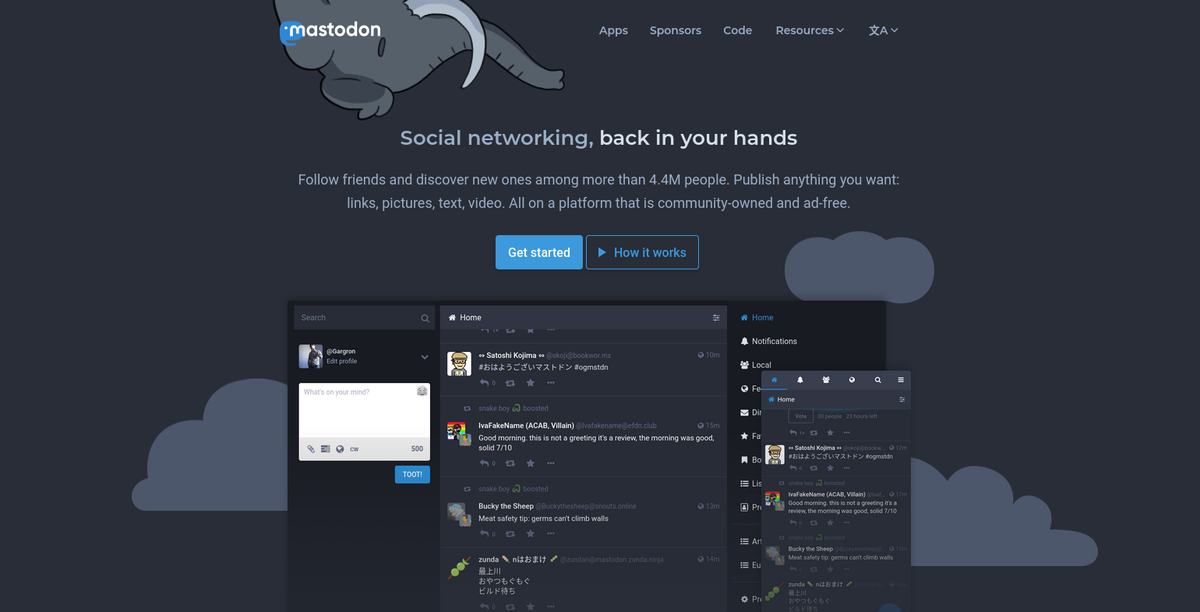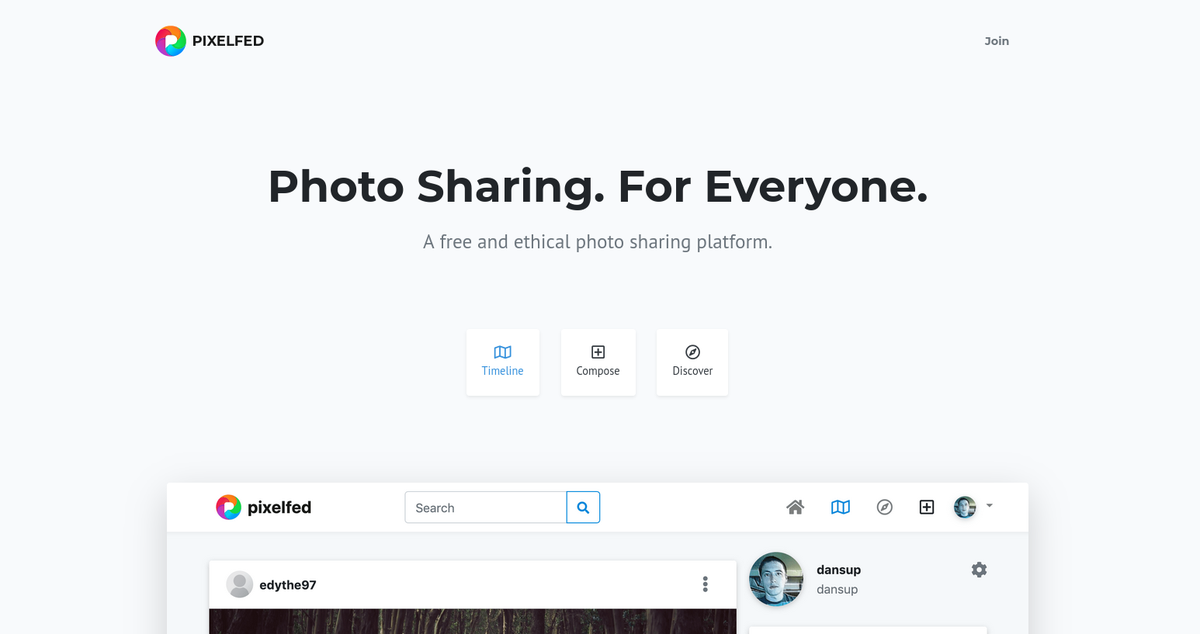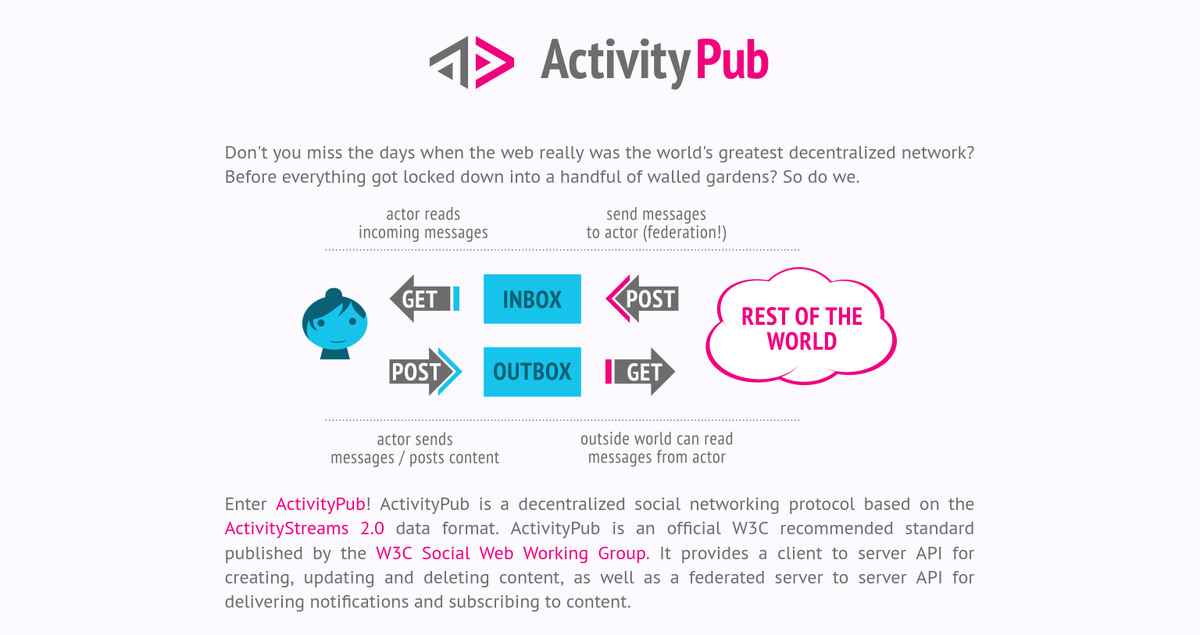With people increasingly aware of the power a handful of companies have amassed through the centralized nature of the modern web, many are now turning to a decentralized alternative: the Fediverse. Does this name ring a bell? For most people, probably not. But there is a growing chance you have interacted with it.
The Fediverse may just be the way for you to exercise control over your data and your online life.
What Is the Fediverse?
The Fediverse is a network of interconnected servers used for social media, blogging, file hosting, and other modern web activities. The name is a portmanteau from the words "federation" and "universe."
Consider how a government can be centralized, with power concentrated in a central location, or federated, with power spread out across many states or localities. When designing or using a web service, we're faced with the same question.
Most popular web services are centralized. Companies like Twitter or Netflix store all of the data on their own servers (or servers they rent from another company, such as Amazon), with exclusive control over that data, who can access it, and how.
The Fediverse is federated. Mastodon, for example, is a Twitter alternative where you can store your account on any number of servers or host your own. Regardless of which server you use, all Mastodon users can interact as though they were all connected to the same one.

Taking a federated approach is actually not a novel idea. It's actually a core part of what makes the internet the internet.
How the Fediverse Works
The internet itself is not a centralized thing. It's an interconnected network of machines. Some computers store data, such as websites, and other computers request access to that data, such as your phone or laptop. This can happen via various open protocols and standards that enable these machines to understand each other. Because these standards are open and interoperable, you can connect to a server from any PC, and you can view a webpage from any web browser.
But these web pages and servers tend to function as individual silos. One website is hosted on this server. Another website exists on a separate server. The extent of interaction tends to stop at hyperlinking between one another.
In the Fediverse, an experience like PixelFed (an alternative to Instagram) doesn't exist as a single website. Instead, PixelFed is actually interoperable code deployed across many websites. A group devoted to Pokemon fan fiction can host a server with its own PixelFed instance, your employer can set one up for employees and customers, or you and your friends can agree to host one together.

Each of these PixelFed websites or "instances" looks and feels mostly the same, and they can communicate with one another. This is very similar to how email functions. Email addresses have a username and a domain address (such as @gmail.com or @protonmail.com) so that your email client knows which server to send the email to.
With this approach, you as an end-user have an experience that still feels like signing into Twitter, but no one single organization controls the entire ecosystem.
What's Wrong With Centralization?
The internet may have an open and decentralized foundation, but most of the sites and services many of us interact with daily are centralized walled gardens. Discord has complete control over how we use Discord, and you cannot send a message from Discord to WhatsApp or Telegram or Signal, even though all of these apps serve a somewhat similar function.
Using a site like Medium is easier than coding your own webpage in HTML, But Medium gets to use and monetize the content on its platform however it wishes, as long as it complies with its own terms of service. Medium can change these terms of service at any time, and most users wouldn't know because they never read them anyway.
On a traditional webpage, you can right-click an image or video and download it to your computer. Sites like YouTube and Hulu block this built-in function of your web browser and consider it piracy.
You can build your professional life around the audience you develop on a social media platform, then watch your business disappear when your social media account gets locked. We all hear about high-profile cases of someone being blocked for saying something inflammatory, but oftentimes people find their accounts locked for mundane reasons or technical issues, with little recourse to get back into their accounts.
On Facebook, some users have resorted to buying expensive Oculus headsets as a workaround to get Facebook to reset their account.
These examples all show what happens when the web is centralized in the hands of corporate entities. It's not merely that these companies have an outsized say over how the web functions, but they also limit what the technology of the web can do whenever full functionality might endanger their profits.
How Does Decentralization Compare?

The open and interoperable nature of the Fediverse means there are ways you can utilize a Fediverse project that you can't with a non-federated one. One such benefit is that you can easily integrate one Fediverse project with another. For example, you can comment on a video on Mastodon and have it show up as a comment on the same video on PeerTube.
If you want a safe space online to talk to like-minded people about a topic, you can cultivate that space without having to block antagonistic people from the entire platform. To return to our earlier example, the Pokemon group can establish its own personal code of conduct, which will differ from that of your employer, which will differ from that between you and your buddies.
You can ban someone from your personal PixelFed instance, but you can't block someone from using PixelFed itself. If you're the person who has been blocked, nothing is stopping you from setting up your own instance or joining a different server and continuing to use the service elsewhere.
At the end of the day, you own your data, even more so if you self-host. Not only that, you get to own the code. Fediverse projects are free and open source. You can audit the software and better trust that the software isn't doing something shady in the background. This reduces the likelihood that someone is collecting, gathering, and analyzing everything you say and do.
Fediverse Projects You Can Use Today
The Fediverse is not yet a household term, but there are a number of mature sites and services out there that you can sign up for or self-host and utilize today. Here are a few and the services you can view them as alternatives to:
- Diaspora (Facebook)
- Mastodon (Twitter)
- Matrix (Slack, Discord)
- Nextcloud (Dropbox, Google Docs, Google Calendar, and more)
- PeerTube (YouTube)
- PixelFed (Instagram)
- WordPress (Blogger, Squarespace)
- Write Freely (Medium)
This list is far from comprehensive. You can find a list of projects over at the-federation.info or fediverse.party. You may find that the list is longer than you expect.
Can the Fediverse Decentralize the Web?
WordPress is by far the most popular and widely utilized Fediverse project. Most of us don't think of it as some special Fediverse, federated thing. It's simply WordPress, a free blogging tool or CMS useful for building a website. But the federated nature of WordPress is a large part of why it has become such a dominant part of the web. It's an example of what success for the Fediverse can look like.
Mastodon and Matrix are perhaps the next most widely known Fediverse projects. Both are mature and competent, but as social platforms, the issue isn't whether they work. The issue is whether the people you want to communicate with are present on these networks, and that's a difficult challenge to overcome. This is the fundamental challenge the Fediverse faces. The Fediverse offers a capable technological solution to many of the web's problems today, but will people embrace it?
![How to Find IMSI Number on iPhone [Helps with iOS Unlock][Updated] data:post.title](https://blogger.googleusercontent.com/img/b/R29vZ2xl/AVvXsEjLjHwhnfUXNJTuiylqmlurhLRVAEVi803j6xcnvN8EZwF5_XUynz1y0Ko-vwpx6O3nT5hogTELahedGzgQpXM5Y99fcBliinyBu8ACw8_DVV3FpPLkIqR0u7v_HM39rAkpV5MyJiG1h5s/s72-c/find+imsi+iphone.jpg)